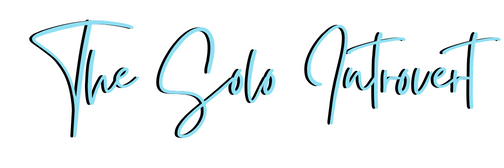For most people, going to work is unavoidable, just like doing your taxes and breathing air. While not everyone enjoyes their job to the same degree, it tend to be introverts who have a bigger challenge going into the office.
Not for a lack of enjoyment or because they hate their colleagues, oh no! It’s just that not all environments are made equal, and most work days and offices aren’t optimised to support introverted people.
We’ll discuss what makes introverts introverts, and how introversion in the workplace affects their day to day.
Understanding introversion
We’ve spoken about what an introvert is and isn’t before, and here’s a quick recap:
Typical introvert characteristics
- Prefer calm environments
- Prefer alone time or individual activities
- Recharge their energy through quiet activities
- Thrive in smaller group settings
Why introversion is not the same as shyness:
We often confuse someone being quiet with being shy, and therefore assume a quiet introvert is shy. However, they aren’t the same thing. Shyness is about a fear of judgement. Introversion is simply a preference for alone time.
When comparing shyness vs. introversion it’s easy to confuse the two, but it’s the underlying thoughts that make the difference. A shy person may remain quiet in fear for being judged for their opinion; an introvert is quietly thinking how to best get their point across in a way that it covers all blind spots. This may take a while, meaning the introvert comes across as just as quiet as the shy person.
That being said, an introvert can still be shy, just like an extrovert can be shy!

How the workplace affects the introvert: why is the office such a hard place to be?
I’ll say it once, I’ll say it twice, I’ll say it a million times:
Open office spaces
For someone who prefers their own, quiet space, the open office space is an arch nemesis. It’s always loud, there’s always movement, constant interruptions, and there’s just too many people!
Even in a quiet open office it may be hard to focus for the introvert. The large space feels uncomfortable and maybe even “unsafe”. If you constantly sense movement behind you it’s difficult to concentrate, and it takes a lot of energy to block everything out. This leads to overstimulation, where all sense are on such high alert they basically go haywire. It’s a difficult and draining state to be in, and something most introverts are unfortunately familiar with.
Team-based work
Introverts are not necessarily shy, nor are we unfriendly. We do prefer individual approaches in most cases, and the bigger the team we work in, the more difficult we find it to get ourselves heard.
In a group of extroverts who are quick to think and speak, an introvert who filters their thoughts to perfection may find it hard to speak over the rest of the team, or the conversation may have moved on to a different topic already.
Think about your standard brainstorm session: shout everything that comes to mind. It’s the exact opposite of how most introverts work, who prefer to make a list in quiet, to curate it and then share. If a workplace caters mainly to extroverts in their teamwork, it will take a lot out of the introvert teammember, as they feel a pressure to be extroverted to be recognised..

Networking events
Whether in office or outside: most networking events are big space, large group, free for all approach. Which works great for some people, not so much for introverts.
Introverts may have a difficulty in large group settings because there is so much going on. Trying to keep up with extroverts as an introvert is like running a marathon at sprint speed; and you can only do that for so long.
How to succeed in the workplace as an introvert
So is it impossible for introverts to work? Should they just give up and resign to always being tired? No! Here are some strategies to use that will help you feel more comfortable in the workplace.
Create boundaries
Build “introvert time” into your schedule, and set expectations for others. This will help them understand that in your working blocks you do not want to be disturbed, and in your open blocks you will have all the attention for your colleagues.
Similarly goes to email and chat responses. Set realistic boundaries as to when or how fast you will respond, so you no longer feel the added pressure to reply at every single notification, keeping your focus on your job. Better yet, turn notifications off during your focus hours!

Get over your fear of self-promotion and claim your space
No one likes to toot their own horn. Time to accept that, and do it anyway! As an introvert you are more likely to step aside and let things go, but when it comes to your work, you need to own your space!
Make sure you get recognised for your work, bring up successes in one-to-one’s with your manager, and just smile and say thank you when you get a compliment: no if’s or but’s! You managed to deliver stellar work despite your environment, you deserve it!
Embrace your introvert strengths
Just because an introvert may struggle in a work environment, doesn’t mean there are only negatives to be looked at. Understanding and taking advantages of the strengths of an individual (introvert, extrovert, or ambivert!) will help bring the best out of their work.
Introverts are deep thinkers. This focus and analysis makes you great in assessing all aspects of a project. In addition to this it means they have a great attention to detail. You’ll find that this think-before-you-act approach that introverts share delivers very thought out and complete pieces of work.
Introverts are good listeners. The introverts in the meeting, session or brainstorm will always have additional thoughts and a bigger understanding of the topics discussed, and how to continue. It’s incredibly valuable to collect and understand the project from multiple perspectives, something an introvert does automatically.
Introverts are great independent workers. Their preference for working alone means they need little external input, which is a great asset for self-directed independent work.
From open office to large team meetings, workplaces can be a real struggle for introverts. But that doesn’t need to mean the end. Minor adjustments such as a quiet space, blocked focus hours and understanding from colleagues can make the work environment much more introvert friendly. In the end that means you or your introvert colleague has more energy at the end of the day, leaving work happy to return the next day.

